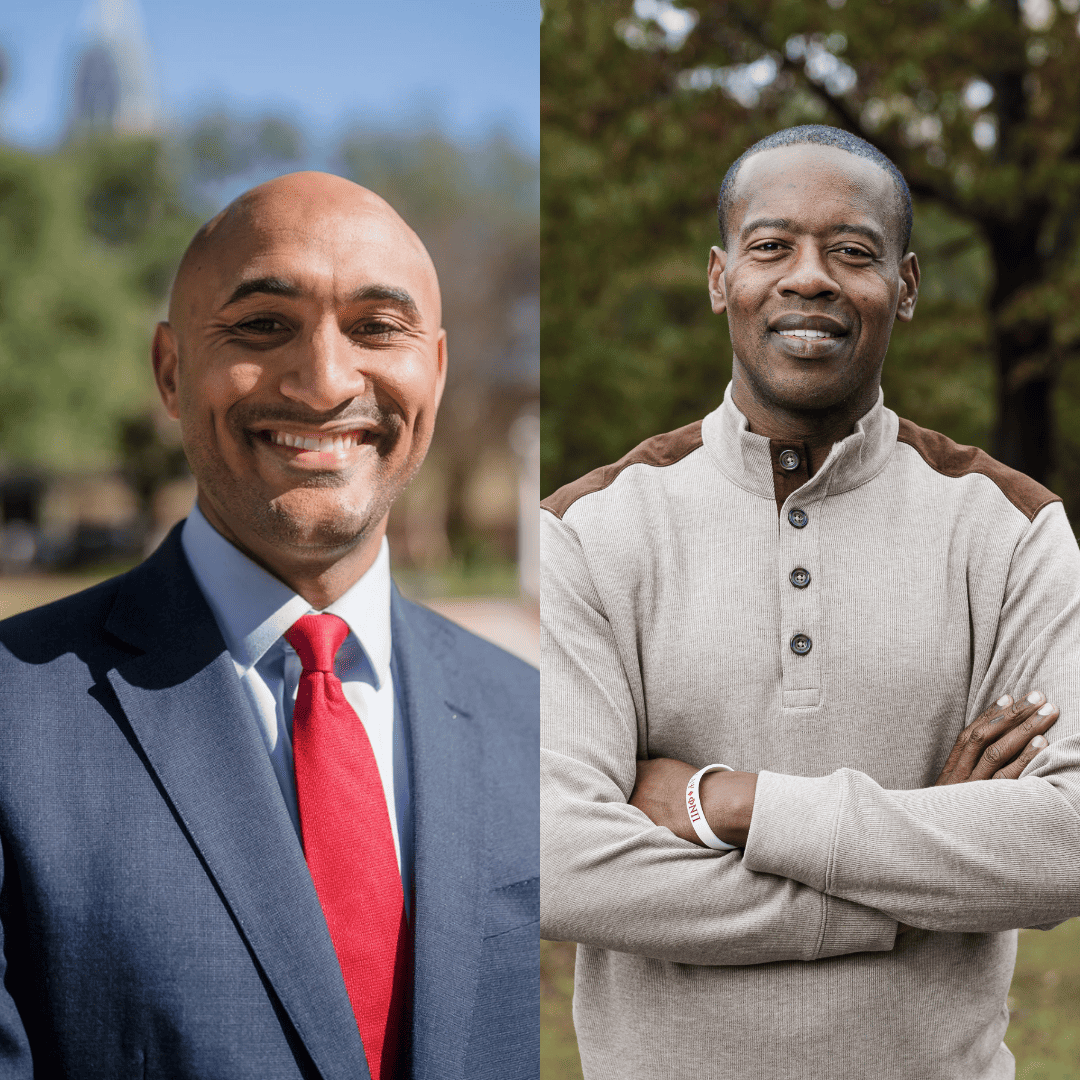On Super Tuesday, March 5, almost a dozen candidates were on the ballot as potential Democratic nominees to represent Alabama’s newly redrawn Black opportunity district, District 2.
Two moved on to the upcoming April 16 runoff: Anthony Daniels and Shomari Figures.
Coming away with 22.4% of the vote, Daniels is the Alabama House minority leader. For the last 10 years, he has been a Democrat in a legislature with increasingly few of those.
Figures, the latest in a political dynasty and Attorney General Merrick Garland’s former deputy chief of staff, received 43.5% of the vote in March. At this point, he’s the favorite to win the Democratic nomination this month and then the general election in November.
He is also the chosen champion of one of the scummiest industries in America: cryptocurrency.
In the last couple weeks before the March primary, the super PAC Protect Progress spent almost $2 million trying to help Figures make the runoff, if not win outright.
Protect Progress is one of three pro-crypto super PACs flush with cash and looking to make sure representatives who want to regulate cryptocurrency don’t get elected.
The PAC that donated to Figures might have a liberal-ish name, and its website might tout that it supports “Democratic candidates committed to securing the United States as the home to innovators building the next generation of the internet.” But other major crypto PACs are looking to make Democrats lose the Senate, aiming their sights at vulnerable incumbent Sens. Sherrod Brown, D-Ohio, and Jon Tester, D-Mont.
Their only real goal? A “bipartisan crypto and blockchain coalition,” according to Josh Vlasto, spokesperson for crypto super PAC Fairshake. In other words, a bipartisan coalition willing to look the other way while working Americans are robbed blind by shysters and confidence men.
Just last week, on March 28, Sam Bankman-Fried, former CEO of crypto unicorn FTX, was sentenced to 25 years in prison. Hopefully Alabamians haven’t forgotten the lessons from his downfall that quickly.
The very year that “Seinfeld” creator Larry David starred in a Super Bowl ad for FTX, Bankman-Fried was unmasked as the latest Charles Ponzi. Funds invested with FTX had been invested only in the loosest of senses, siphoned off to pay for Bankman-Fried’s lavish lifestyle or to fund risky bets at Alameda Research.
What else was Bankman-Fried doing with his billions? He was trying to buy off every member of Congress who would take his money, donating $70 million in less than 18 months. Just like the PACs that are carrying on his work today, Bankman-Fried donated to Democrats and Republicans alike, so long as they wanted the federal government to look the other way on crypto.
And what happened? Before Bankman-Fried could really start solidifying his bipartisan pro-crypto coalition, FTX went bankrupt and Bankman-Fried went to jail. The entire flashy tech company-cum-bank had been one long con.
If Figures wins the primary, his victory in November will be one more step toward the coalition Bankman-Fried and the remaining crypto billionaires have been trying to build. And cryptocurrency isn’t just a haven for scammers of all stripes. It’s also helping to kill the planet.
The U.S. Energy Information Administration estimated that cryptocurrency uses 2% of American electricity output. Thanks to how dirty American electricity production is, that means vast amounts of fossil fuels are being burned.
Sensibly sidestepping the issue whenever possible, Figures and his campaign have consistently avoided addressing people’s well-founded concerns about his connections to the crypto industry. One spokesperson simply said, “We cannot control who outside organizations support and how they spend their money,” and deflected by pointing to fellow candidates’ fundraising.
The campaign even refused to answer questions from the Alabama Political Reporter about whether Figures had ever worked on cryptocurrency regulation at the Department of Justice.
But despite all the red flags, the Alabama Democratic Conference, the Black caucus led by political kingmaker Joe Reed, still endorsed Figures on March 24. Unless something changes soon, Figures will be the new member of Congress from Alabama’s 2nd District.
Unfortunately, despite Figures’ shady backers, the upcoming runoff isn’t a case of a man on the take facing off against a blameless Mr. Smith type. Daniels is hardly a progressive stalwart or hometown hero.
Despite being born in the redrawn 2nd District, Daniels lives in and currently represents Huntsville, outside of the district. His priorities page doesn’t include any mention of traditional progressive rallying cries like Medicare for All or the “Protecting the Right to Organize” Act, despite his endorsements from local labor unions.
If elected, it’s a safe bet he will vote like Terri Sewell, another relatively milquetoast moderate (nota bene: it would still be a massive improvement over the district’s current representation).
Neither candidate in this runoff will bring an exciting vision to Washington, or be a truly ambitious advocate on behalf of poor Alabamians. But only one candidate is likely to consult crypto kingpins before they decide how to vote on the latest regulations meant to protect workers’ pension funds.
And in my opinion, a vote against an awful candidate can be as important as a vote for a great one.







